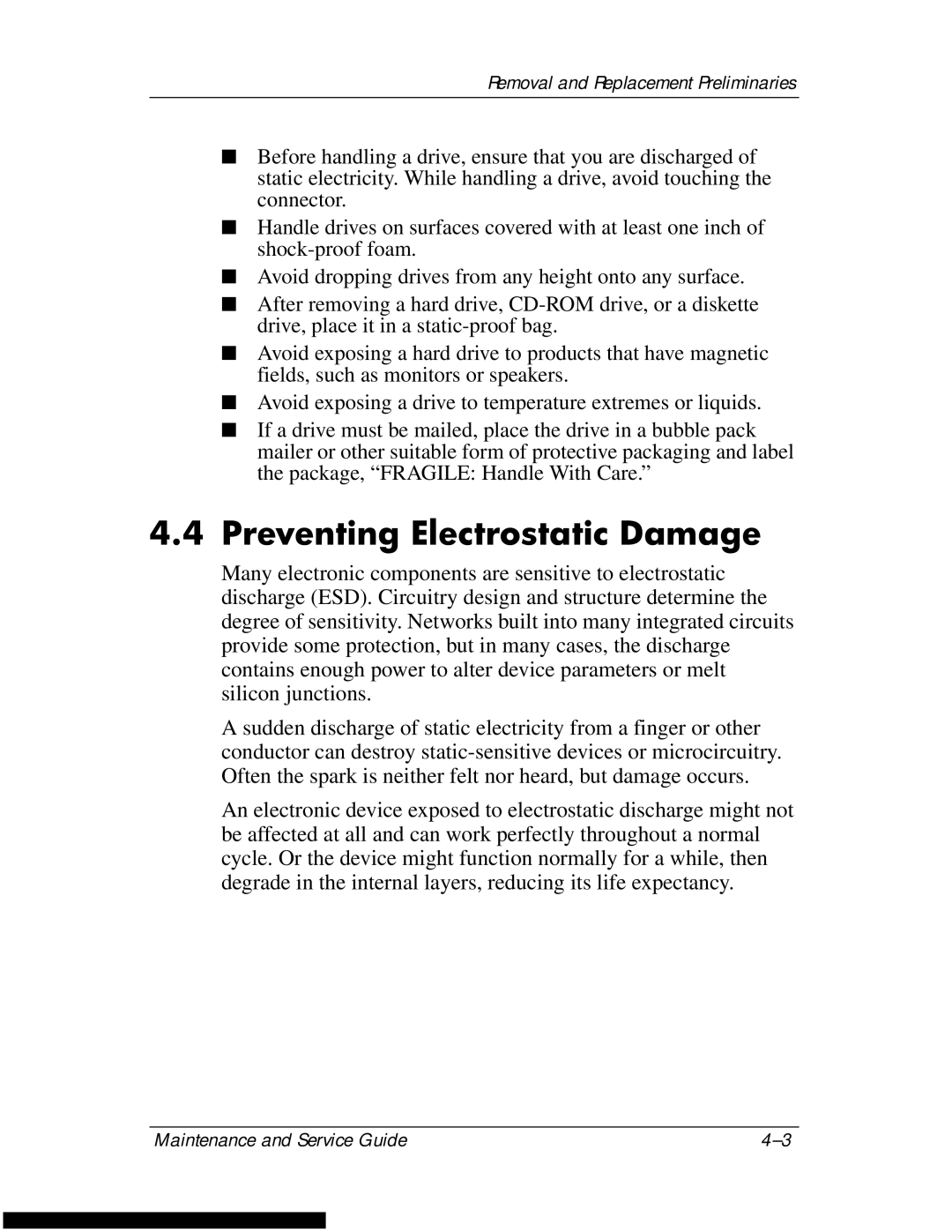
Removal and Replacement Preliminaries
■Before handling a drive, ensure that you are discharged of static electricity. While handling a drive, avoid touching the connector.
■Handle drives on surfaces covered with at least one inch of
■Avoid dropping drives from any height onto any surface.
■After removing a hard drive,
■Avoid exposing a hard drive to products that have magnetic fields, such as monitors or speakers.
■Avoid exposing a drive to temperature extremes or liquids.
■If a drive must be mailed, place the drive in a bubble pack mailer or other suitable form of protective packaging and label the package, “FRAGILE: Handle With Care.”
4.4Preventing Electrostatic Damage
Many electronic components are sensitive to electrostatic discharge (ESD). Circuitry design and structure determine the degree of sensitivity. Networks built into many integrated circuits provide some protection, but in many cases, the discharge contains enough power to alter device parameters or melt silicon junctions.
A sudden discharge of static electricity from a finger or other conductor can destroy
An electronic device exposed to electrostatic discharge might not be affected at all and can work perfectly throughout a normal cycle. Or the device might function normally for a while, then degrade in the internal layers, reducing its life expectancy.
Maintenance and Service Guide |
